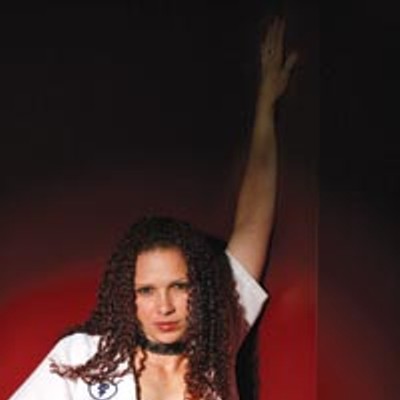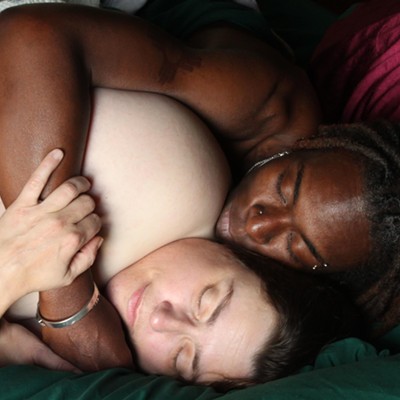Heather Ferri teaches tap dance, yoga and Pilates exercise classes. But she most identifies as a hoofer -- a tap dancer who speaks with her feet. Ferri, 32, grew up in South Fayette. She got her first dance shoes at age 3 and has been a dancer, choreographer and soloist; she holds a Guinness Book record for most turns in tap shoes on one foot (16). The Point Park graduate's resume also includes Broadway and Off-Broadway credits and, most recently, My Life As a Hoofer, a one-woman show at Downtown's CLO Cabaret. She recently moved back to Pittsburgh.
So not all tap dancing is hoofing?
The difference is when you're on the ball of the foot [in tap], that's the melody; it's only part of your voice. The heel makes you have a little bit more to say. If you took the music away, and just listened to the tap dancer, if you don't hear music, or really hear dialogue, they're just tapping. But if you hear the music, then they're a hoofer.
After college, you took the dancers' trail to New York.
In my early 20s I thought, "I need to get into a Broadway show" -- honestly, to feel special, to be recognized. I had quit tapping for like three years, and then I drifted by a hoofers' studio. And I'm like, "Whoa." It's like all the black masters who I saw on video growing up and who I always wanted to meet.
What was it like?
It would be just like in the movies: They'd have a bar in the front, then you go to a back room and there'd be a small stage and a jazz band. I remember the first time I was there, I was the only white person. I went to a corner and I sat there for five, six hours -- because they tapped till 3 a.m. I was very shy, especially around the masters: Jimmy Slyde, Buster Brown, Henry Letang, Gregory Hines; [it] humbled me, just being in their presence.
Jimmy Slyde took me under his wing, and I'm very grateful that he did. [He'd say,] "OK now, give me more heel." Because the heel is the bass, and I didn't really use my heels at the time.
Pittsburgh has a tap heritage.
Pittsburgh was such a hoofers' city in the '30 and '40s. Every dance studio [operator] we have today, their mother or grandmother was a hoofer. And Gene Kelly didn't [flee] to New York; New York called Gene Kelly and said, "Can you come and choreograph?"
That's why when I came back to Pittsburgh, I was like, "There's no hoofing going on here!" It's not because people can't; there's some great tappers here. It's just not being created, and I want to create that, because then it lives.
How did Hoofer go?
I was really afraid to do my show, afraid of judgment. But I found that I was embraced with love here. There were men that came up and said, "I saw Bring in da Noise, I saw Tap Dogs. They're all men! Never thought about it." I talk a little about not wanting to just stand in a straight line and kick. When comes the day when [women] don't have to be just robots? I want a voice; I want women to have a voice.
How else are you spreading the word?
I did a tap-history show in Homewood, which was really fulfilling. I had the opportunity to teach [African-American grade-schoolers] about their ancestors and their roots, because tap-dancing comes from slavery. The slaves used to drum, and the drums were taken away because the drumming was communicating across fields; [slave owners] were afraid they were going to revolt. They tried to figure out another way to communicate, so they did it rhythmically through their feet.
What were you like as a kid?
I was very shy. Growing up, I spent a lot of time by myself tapping.
Sounds meditative.
Now that I study meditation, I look back and go, "Hmmm." I always think that just now I'm finding my voice. Because you learn all the masters' vocabulary, and then you have to find yours. It's a really "late" art form; you evolve later in life, I think because you need wisdom, and you get past "I need to show off" and you get into the art.
Why return to Pittsburgh?
Everyone keeps asking me that. As soon as Gregory Hines died, I think all the young hoofers [in New York] had to rethink: "What are we going to do? Our leader's gone." And a lot of them moved to small cities, because there's no work in New York for hoofers right now. It's always been not a lot for women, period.
When I came back here, in the fall, to Pittsburgh, [it] was really a life-changing decision. It just made me realize that I will do this till I die. There is no price to it. And I'm glad I finally figured that out.














